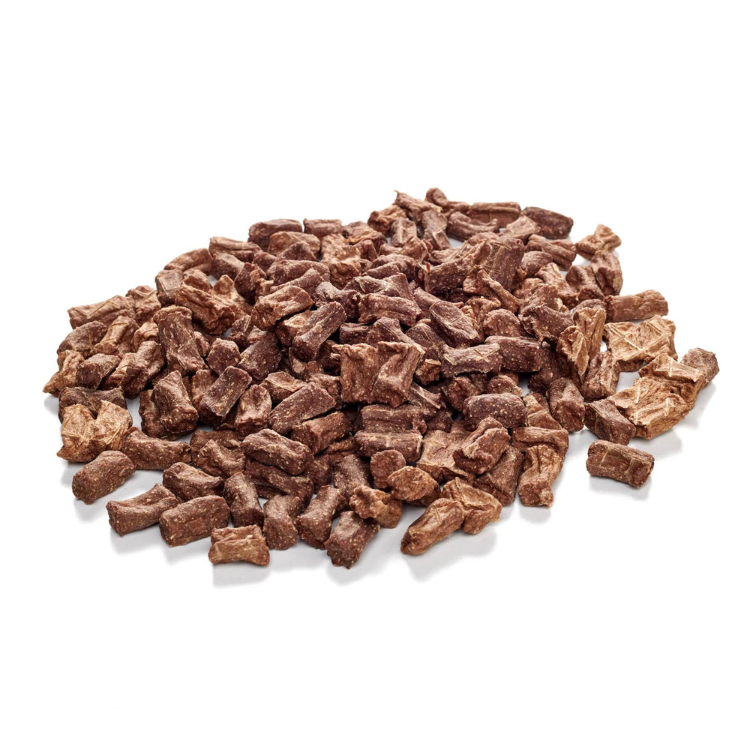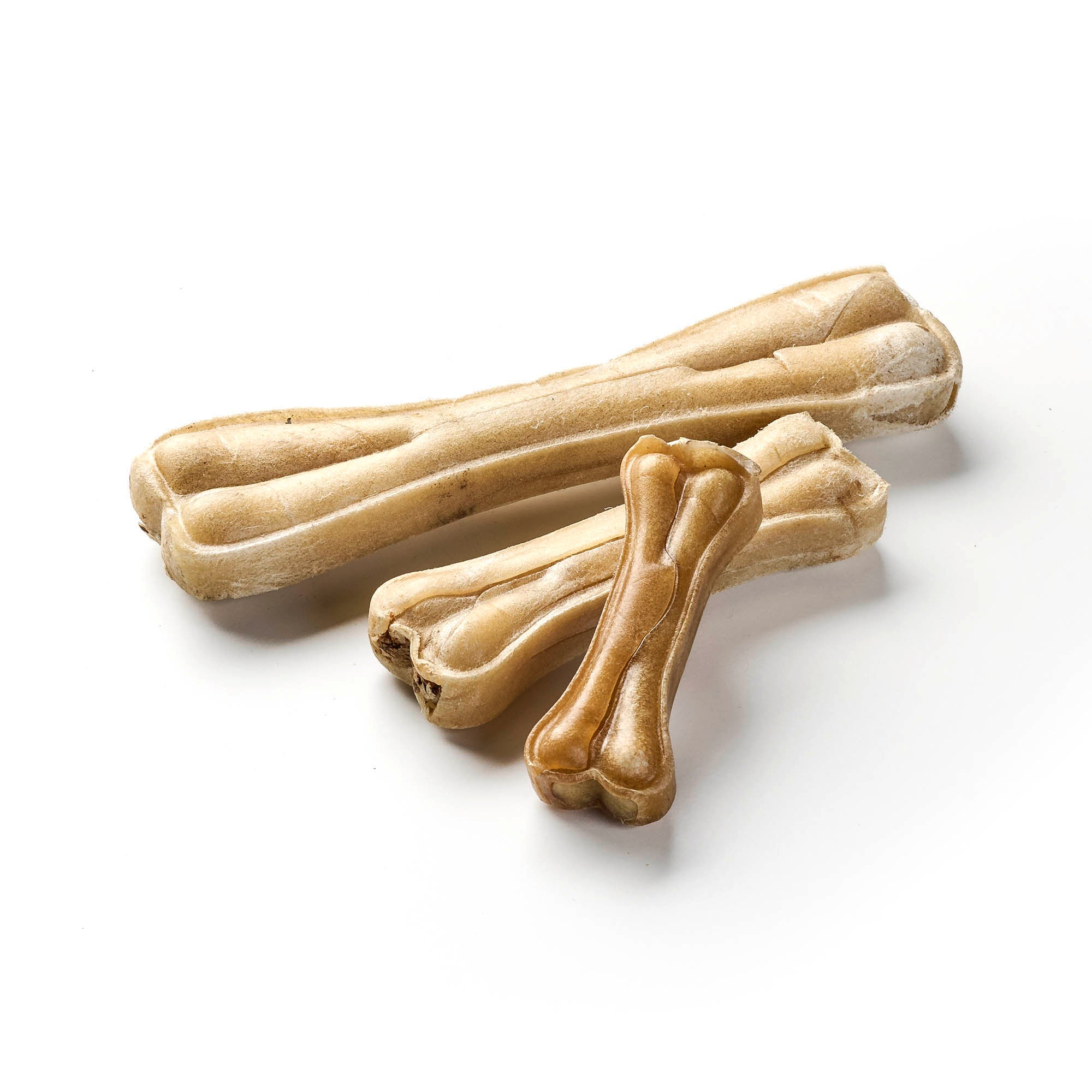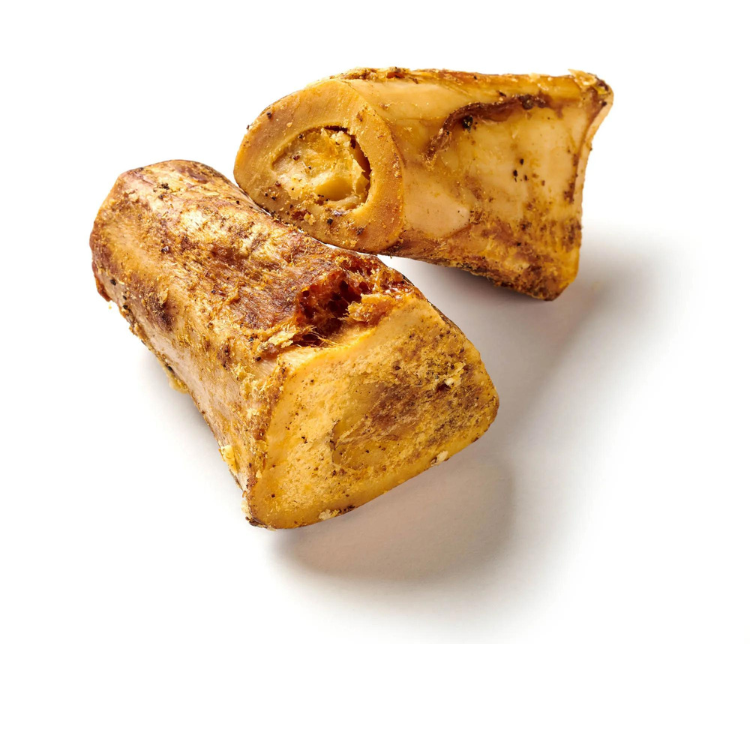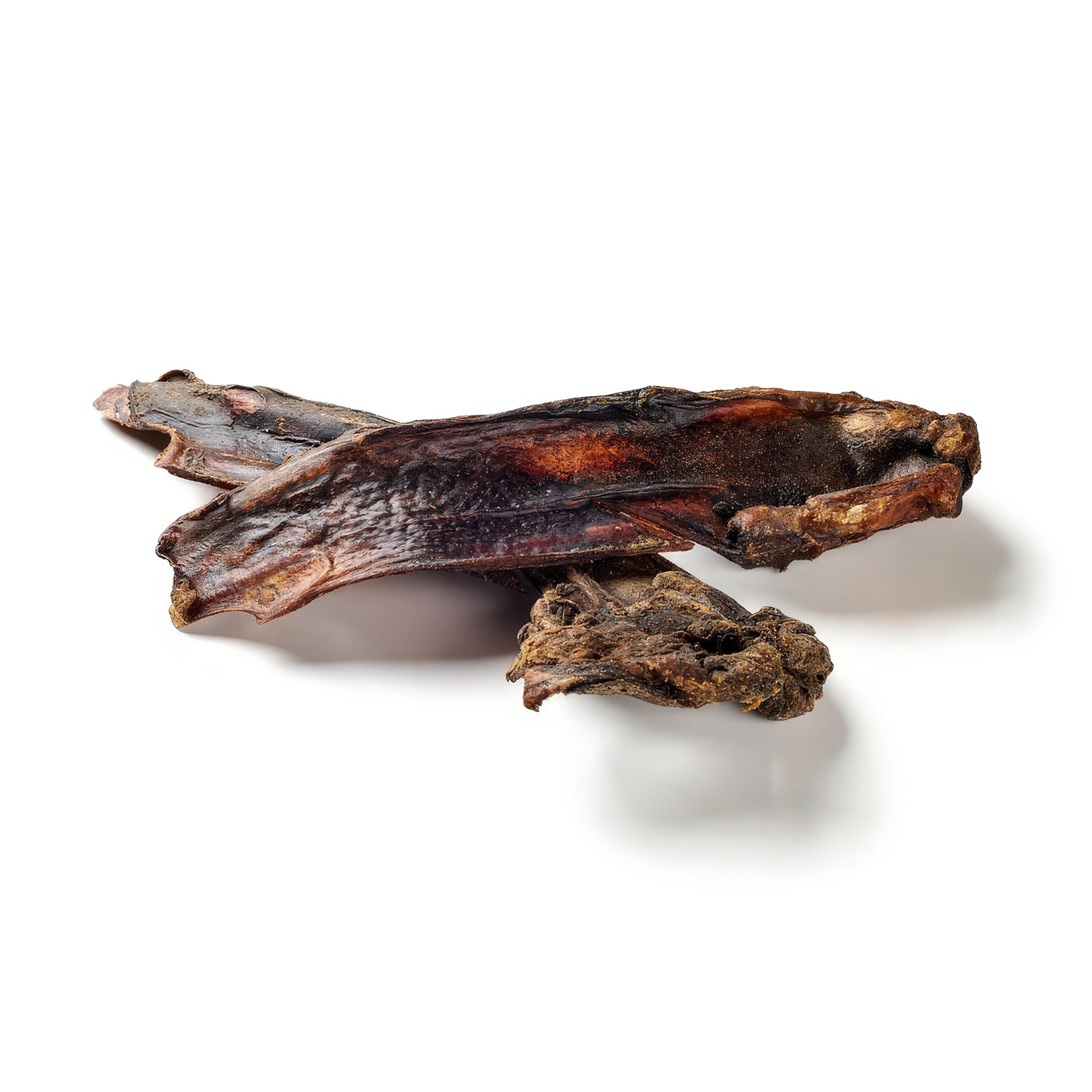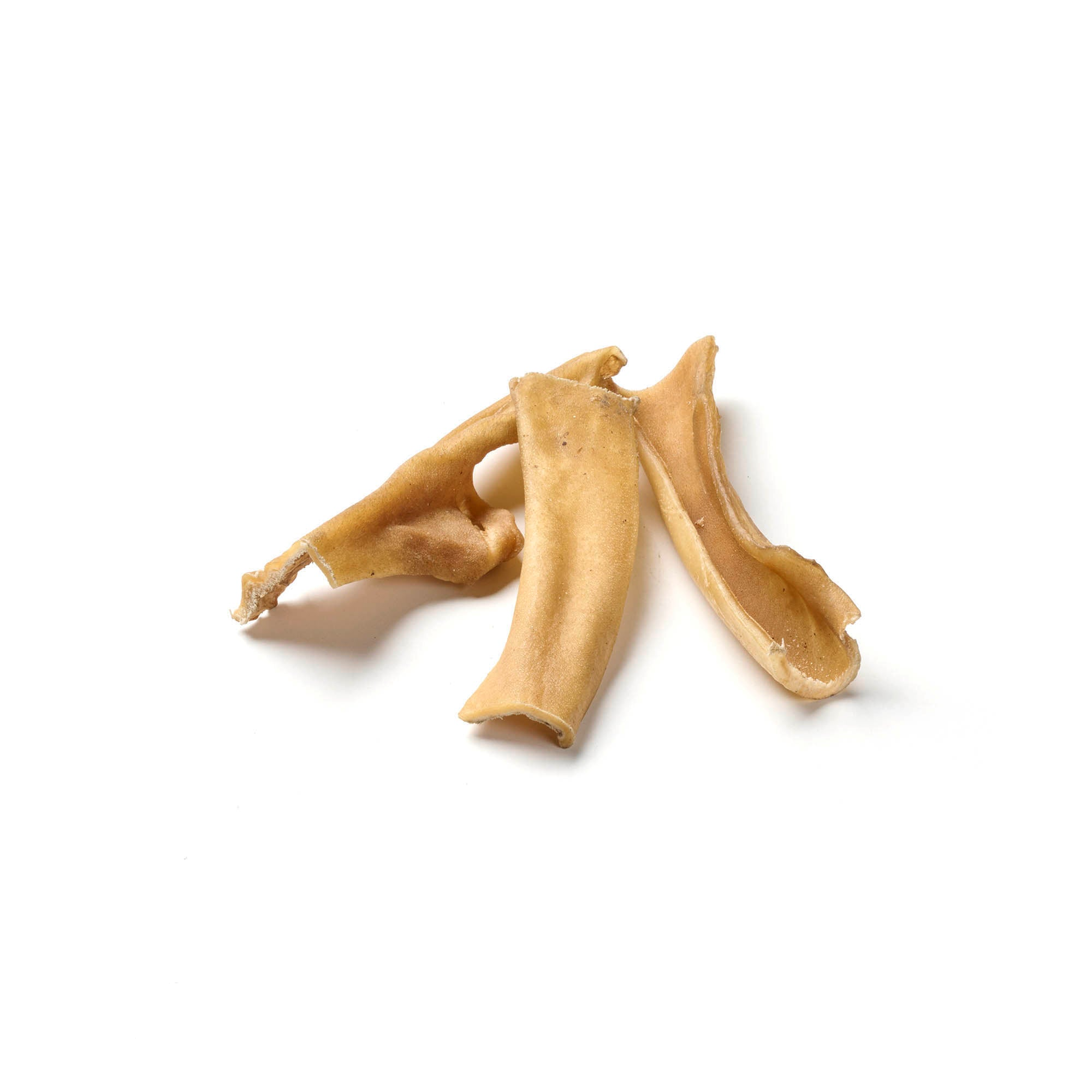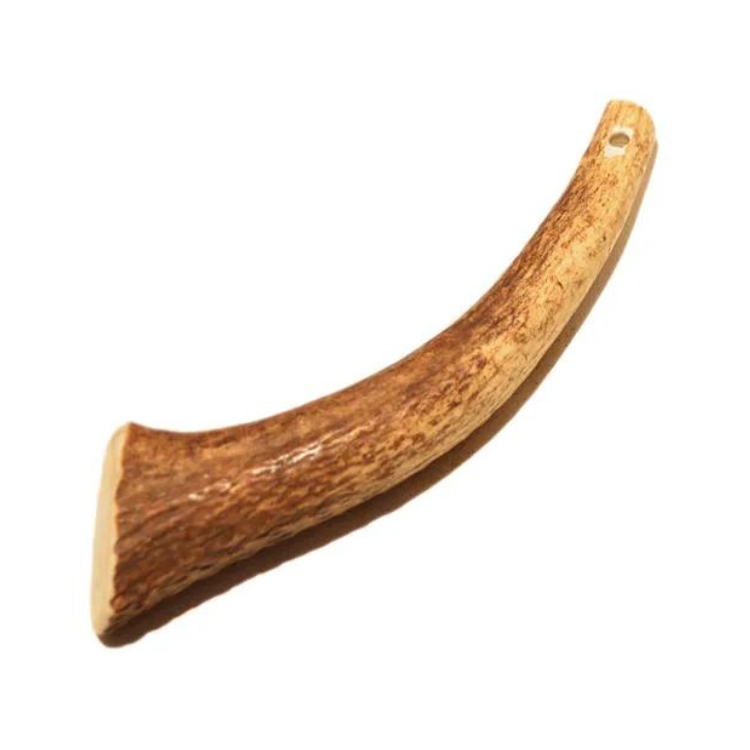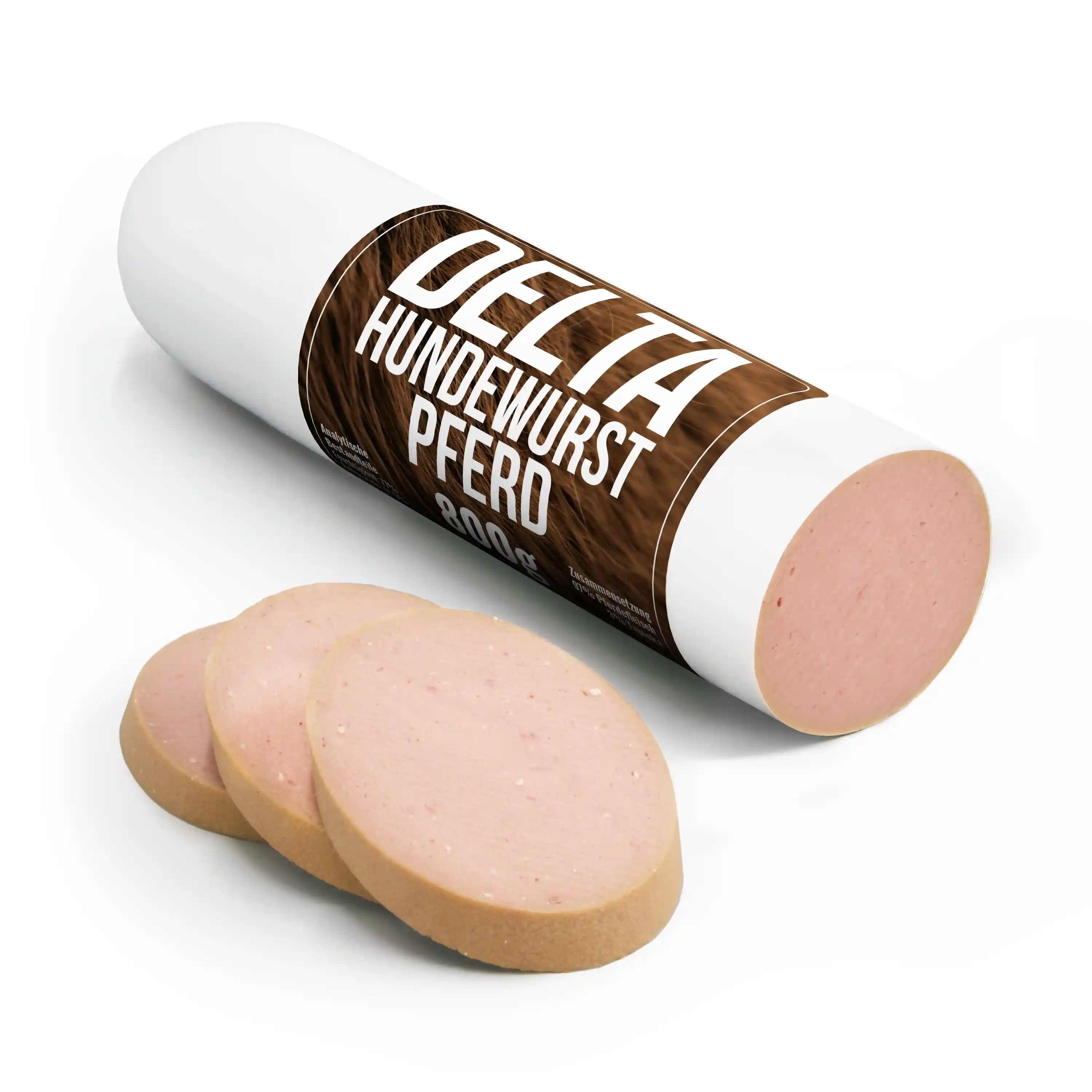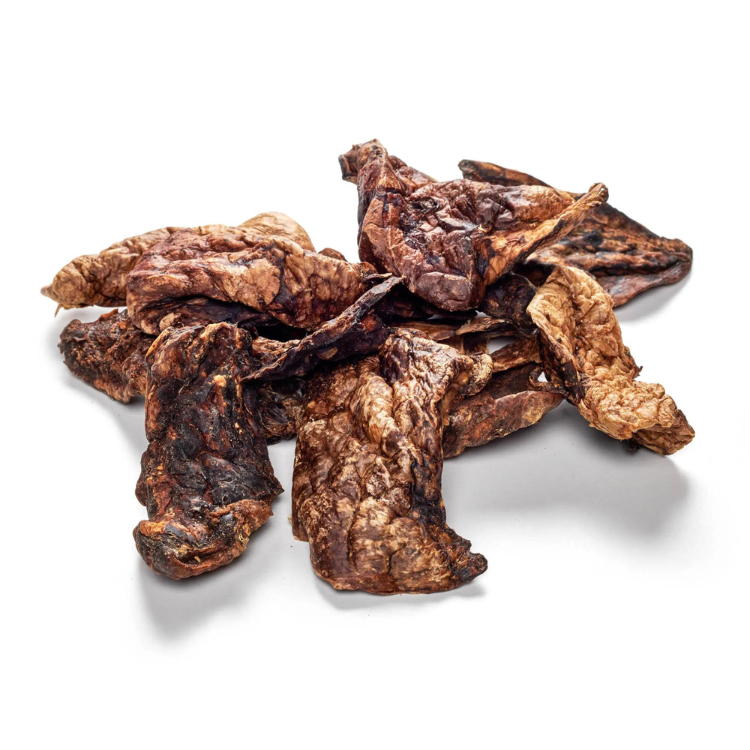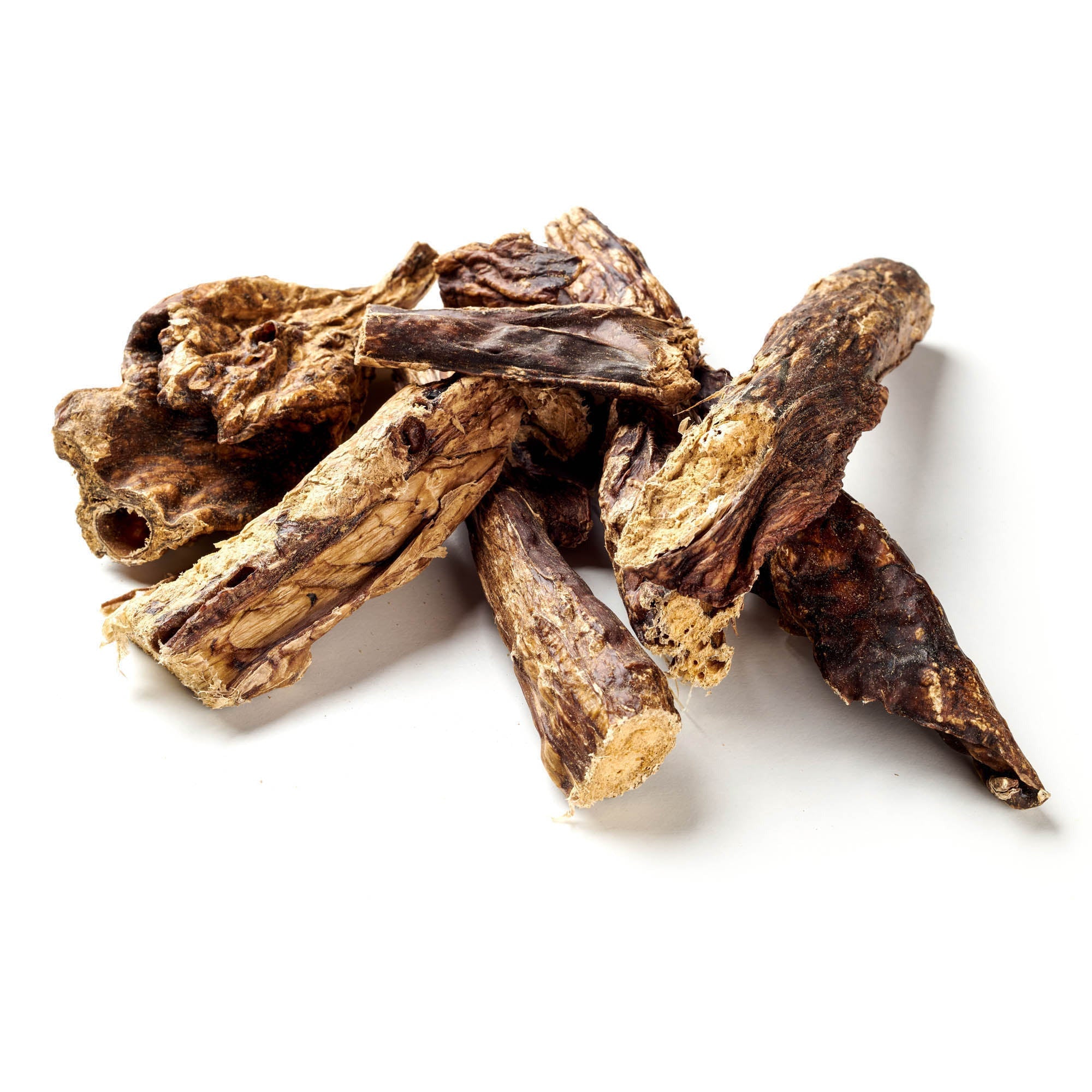
Food envy in dogs
Share
Food jealousy in dogs is a natural behavior that is actually quite harmless in most cases. It serves to defend one's food from the competition. While this made sense in the wild for your four-legged friend's ancestors, today, as a beloved pet, your furry friend no longer has to worry about losing his prey to another animal in the pack or simply not being full. We'll explain what you should do if your dog becomes jealous of food and how you can break the habit here!
Content: Food envy in dogs
- What is food envy?
- How do I recognize food jealousy?
- Food envy towards humans
- Food jealousy towards other dogs
- Conclusion
Reward your best friend with our dog treats!
What is food envy?
Food jealousy is a behavior in which the food is protected and defended from others while it is being eaten. The term "food jealousy" is somewhat misleading, because instead of feeling jealousy, it is partly about competition within the group and partly about resource aggression. This means that even when the dog has already finished eating, it is about defending its property. This behavior does not have to be limited to dog food alone. It can become increasingly widespread until you are no longer allowed to go near the feeding place or touch the toy without being growled at. It therefore makes sense to treat this behavior as early as possible.
How do I recognize food jealousy?
A wide range of reactions are possible. Reaction number one is also known as the famous puppy dog look. It is difficult to resist but in itself it is harmless. The other extreme is that your four-legged friend displays aggressive behavior as soon as you approach his food bowl (or toy, water bowl, etc.!). Growling, barking, snapping at you - depending on the dog, the responses can be quite hostile and very different from his usual behavior. Action is required, especially if your dog's reaction tends toward behavior number 2. Especially with children in the house, this can lead to a tricky situation if your furry friend physically defends itself.
Pamper your dog with our delicious chews!
Food envy towards humans
First of all, the good news: although food jealousy is an innate instinct of dogs, it can be easily broken with some training! The causes of this behavior often lie in puppyhood. For example, dogs that are separated from their mother too early are more likely to do it. Possibly because they lack the mother as a role model, who shows them that the human gives the food and does not take it away. So no reason to be afraid and switch to defense mode, little dog! Bad behavior that is not trained out of the puppy in time will of course carry over into adulthood, but even then you can usually start training without any problems.
As a dog owner, you should also not forget that dogs do not have a feeling of fullness like we humans do. The pleading look you get when a bag rustles or something smells tempting should not encourage you to give in to your furry friend's food envy every time because you think he is hungry. In the long term, the constant treats outside of regular feeding times can lead to obesity and, as a result, other problems.
… and what you can do about it.
To prevent food jealousy from occurring in a puppy, it is advisable to train a few things about feeding right from the start - regardless of whether it is a puppy or an adult (perhaps even adopted and thus pre-conditioned) dog.
Generally
- You have the power! Don't let anyone challenge you for the position of food distribution. Clear hierarchies help in dog training. Don't let a sad, cute dog look change your mind.
- Set fixed feeding times, no snacks in between meals and no leftovers from the table.
- Determine a fixed feeding place in the apartment or house and ensure that the atmosphere is quiet and undisturbed. For example, placing the food bowl next to your own dining table is not a good idea. You should leave your furry friend alone while he is eating and also make sure that no one messes with the bowl when it is not feeding time.
To become active
- Try hand-feeding. This will clearly signal to your four-legged friend that you are not a threat. You are not taking anything away, you are giving.
- If you have a fixed place for eating (for example the kitchen), you can keep the dog out of that room completely. Of course, this method is difficult to implement in the long term, because you probably eat a few chips on the sofa in the living room, have guests over or treat yourself to an ice cream in the park while the dog runs around you.
- Have you ever heard of a food dummy? It's an educational dog toy that you can put treats in. When you go for a walk, you throw the dummy away and have your dog bring it back to you. As a reward, you get a little something from the toy.
Food jealousy towards other dogs
Food jealousy also occurs among dogs - of course! This behavior is particularly noticeable if you have several dogs or if your furry friend meets other dogs while playing. Fighting over food bowls or chewing bones etc. is nerve-wracking for everyone involved, including the dog owner, and can lead to great frustration. All of the measures mentioned above can also be applied here, but we have a few extra tips for you in this special case:
… and what you can do about it.
- First of all, the dogs should not eat without supervision. This way you can keep a close eye on who is causing the aggression.
- To ease the situation, you can separate the animals (spatially) during feeding. Each four-legged friend gets its own special bowl in its corner of the room or in different rooms. If that works well and you want to feed them all in one place again in the future, you can slowly (!) and with a lot of patience bring the bowls closer together again.
- Chewing bones, toys, etc. should not be left lying around openly. Be there when your dogs are playing and observe their behavior. Deliberately give your dogs chews and see who uses what. Intervene with commands or admonitions if the arguments get out of hand.
Conclusion
Food jealousy in dogs is not unusual behavior and even though it mostly relates to food, aggressive behavior can also occur with toys, for example. If you have a puppy, you have it under your control from the start. However, later in adulthood, food jealousy can become an issue. You can usually counteract food jealousy in your four-legged friend yourself. By behaving confidently and dominantly, you make it clear who is leading the pack and that you are not a threat. Fear of loss is often behind food-jealous dogs - fear of losing their food or having to give up their favorite toy.
Fixed feeding times and a quiet (separate) place for the bowl often help. However, you should really be careful if your dog's behavior goes beyond growling. Snapping at people or other dogs must be taken very seriously before something stupid happens. If in doubt, it is always a good idea to take your problem to a dog school or ask your vet for advice.
Discover our selection of premium dog chews!

